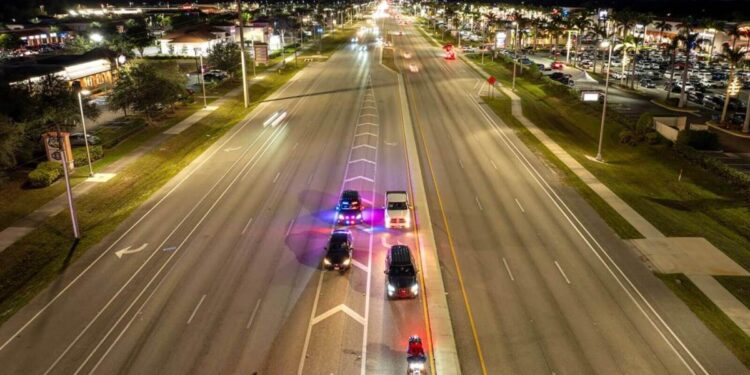
Look. No one wants a traffic stop. Those flashing lights and eardrum-piercing sirens have the power to take a typical drive and turn it into a week-ruining event. Fortunately, you can heed the advice of these experts to avoid making the sort of mistakes that turn a ticket into a nightmare encounter with the police.
Experts agree on the mistakes that drivers make at traffic stops that make things much, much worse
It doesn’t happen often, but police officers may issue a warning instead of a traffic ticket under specific circumstances. Ticket or warning, though, motorists should avoid making these mistakes to keep a traffic stop from spiraling out of control.
- Not stopping quickly enough
- Neglecting to turn on your vehicle’s interior light
- Moving to recover your license and registration without prompt
- Arguing or being unnecessarily confrontational
- Volunteering more information than is necessary
Not stopping quickly enough
It’s essentially rule No. 1 for traffic stops. As soon as you see the flashing “berries and cherries,” it’s time to pull over. As a rule of thumb, drivers should pull over as quickly and safely as possible.
The American Civil Liberties Union (ACLU), a nonprofit organization that often focuses on matters of interactions with law enforcement, advises drivers not to dawdle. “Stop the car in a safe place as quickly as possible,” the ACLU says. After all, a failure to stop can result in a much more aggressive interaction and possibly handcuffs.
Neglecting to turn on your vehicle’s interior light
So, you’ve stopped your vehicle and you see the police officer approaching. According to Joseph Ruiz Law, you should remember to turn on your vehicle’s interior light during hours of low light.
It’s a good move, too. A well-illuminated interior, paired with visible hands, can lower a police officer’s suspicions that you intend to do them harm. While an operable interior light isn’t an essential piece of equipment, drivers should at least place their hands on the steering wheel.
Moving to recover your license and registration without a prompt
Just about like clockwork, a police officer is likely to ask you for your license and registration at a traffic stop. Resist the urge to immediately reach for them without being prompted or communicating your intent to do so.
According to The Traffic Law Guys, you should “not reach for anything until the officer asks for it. The approaching officer does not know if you are reaching for your insurance card or a gun.” Instead, just breathe, keep your hands visible, and wait for the officer to ask you for your documentation.
Arguing or being unnecessarily confrontational
Let’s face it, not every police officer is going to be professional during a traffic stop. But even if you believe they’ve crossed a line or violated your rights, avoid becoming confrontational.
“You’re not going to win an argument on the side of the road with a cop,” The Traffic Law Guys warn. “Save it for court.” That said, try to remember the specifics for court or an official complaint. Try to remember the time, the officer’s name, the details of the stop, and anything else of note.
Volunteering more information than is necessary
Contrary to popular belief, you don’t have to provide excessive information to a police officer during a traffic stop. You’re protected under the Fifth Amendment of the United States Constitution against self-incrimination. As such, when a police officer asks you why you think they pulled you over, a response of “I’m not sure, officer, could you explain?” is more than sufficient.
The same goes for drivers transporting firearms. In a state that requires you to declare a firearm, or a “Duty to Inform” state, it’s the law. However, in a state that doesn’t require a declaration, telling a police officer that you have a concealed firearm can add tension to the situation. In short, answer lawful questions as they come up, don’t volunteer more than is necessary.




